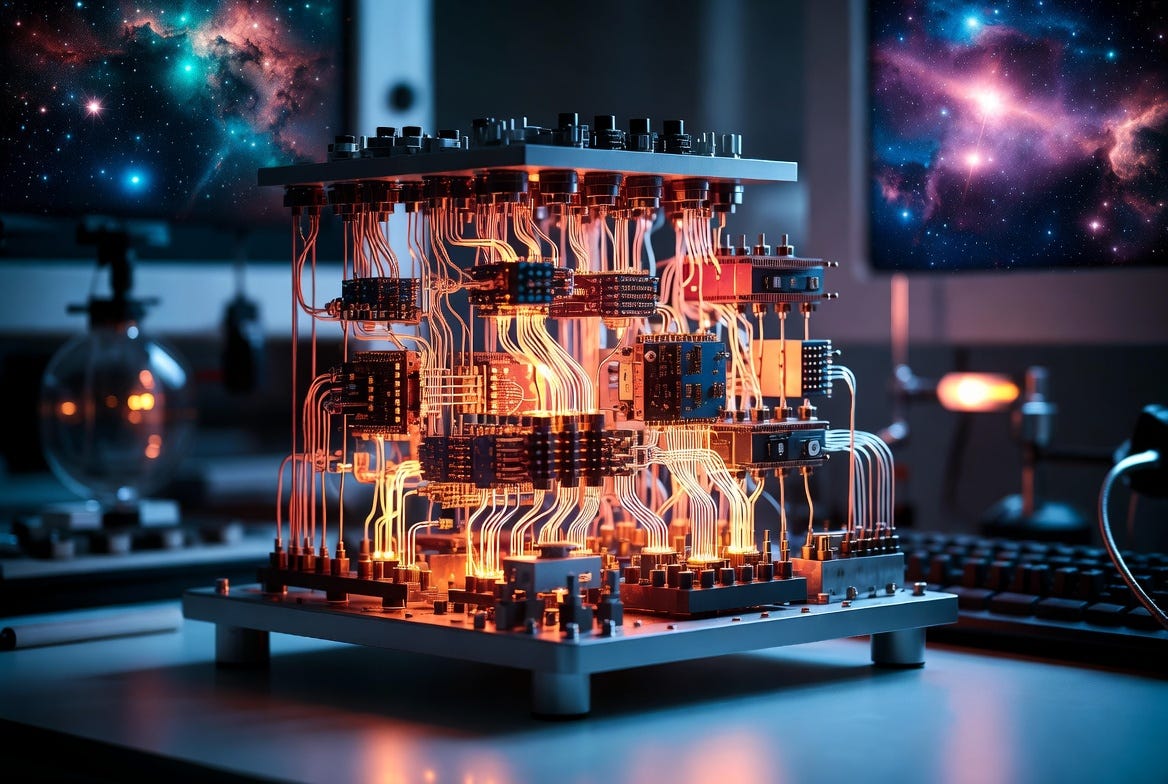Look out, Quantum, TSU Unleashed with 10,000x AI Incoming in 2026
Extropic AI has unveiled Thermodynamic Sampling Units (TSUs), a revolutionary hardware paradigm poised to slash AI energy demands by up to 10,000 times compared to traditional GPUs for generative tasks, with initial prototypes beta-tested and commercial rollout targeted for 2026.
Unlike deterministic GPUs that crunch matrix multiplications, TSUs embrace probabilistic computing, harnessing networks of pbits—tunable random number generators—to directly sample from energy-based models (EBMs) via Gibbs sampling. This physics-inspired approach, rooted in thermodynamic principles, generates data from probability distributions in a single pass, bypassing energy-intensive approximations in diffusion models. Simulations of Extropic’s Denoising Thermodynamic Model (DTM) on TSUs demonstrate this leap: for small-scale generative AI benchmarks, they consume orders of magnitude less power by minimizing communication overhead and leveraging local circuit interactions.
The XTR-0 development platform, a proof-of-concept chip fabricated with transistor-based tech, has already been validated by partners, enabling hybrid workflows where TSUs handle sampling-heavy loads alongside GPUs. Applications span foundation models, biological simulations, and chemistry modeling, all while integrating with open-source tools like the ThrML Python library for algorithm development.
Yet, this efficiency windfall carries a caveat: the Jevons Paradox. Named after 19th-century economist William Stanley Jevons, it posits that technological gains in resource efficiency often spur greater consumption, as cheaper access amplifies demand—mirroring coal’s boom post-engine improvements. In AI, TSUs could democratize complex computations, fueling exponential model scaling and broader adoption, potentially ballooning data center energy use beyond current grids’ capacity, despite per-task savings.
Extropic’s breakthrough signals a pivot from brute-force silicon to elegant physics, but without policy guardrails, it risks accelerating AI’s voracious appetite rather than quenching it.
Sources
Extropic AI. “Thermodynamic Computing: From Zero to One.” https://extropic.ai/writing/thermodynamic-computing-from-zero-to-one
VKTR. “Extropic Claims 10,000x Energy Savings With New Probabilistic AI Chip.” https://www.vktr.com/ai-news/extropic-claims-10000x-energy-savings-with-new-probabilistic-ai-chip/
The Rundown AI. “Extropic’s 10,000x AI energy breakthrough.”
https://www.therundown.ai/p/extropics-10-000x-ai-energy-breakthrough
NewBits AI. “Extropic Thermodynamic Chips — 10,000x Energy Breakthrough?” https://www.newbits.ai/post/extropic-thermodynamic-chips





